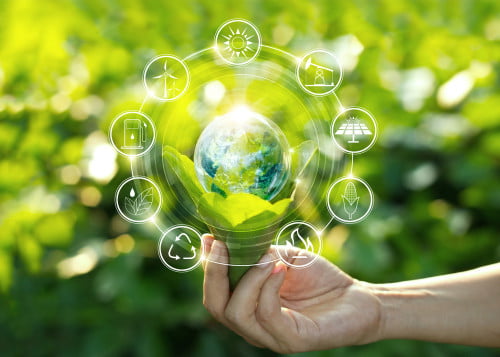

Environment
What To Know About The Role of Ecology In Protecting The Planet
How can each of us protect our planet?
Ecology gives us some understanding of how our planet works because it examines the relationship between plants and animals (including humans) and their environments. Because of this, it can predict the effects of pollution and climate change and show us how to protect habitats and their biodiversity.
We have an interdependent relationship with these complex ecosystems, and if we continue to fuel our lives the way we currently do, they are likely to collapse. Human overconsumption, overpopulation, and deforestation mean that the planet is currently facing unprecedented biodiversity loss, pollution, and climate change.
As the dominant organisms in the ecological system, human beings have a responsibility to make small changes in our lifestyles and create a better world for future generations.
The harmful consequences of human behavior on the planet
Everyday activities like driving to work, buying plastic water bottles, and using residential pest control services to get rid of critters might seem harmless enough, but these things can have extremely detrimental effects on the environment over time.
Here are some of the ways our behaviors have an impact on our planet
Plastic usage is ruining our oceans
Since 1950, humans have produced around 8.3 billion metric tons of plastic. The impact of plastic usage on our oceans is catastrophic. It has been estimated that there will be more plastic than fish in the sea by 2050. Plastic commonly ends up in marine animals stomachs, and plastic straws can take up to 200 years to decompose.
Overconsumption and overpopulation is increasing rubbish and deforestation
The amount of rubbish we create is increasing, and landfill sites are filling up fast. The demand for more food, material goods, and shelter also means the destruction of large areas of forest and natural habitats.
Extermination is destroying ecosystems
Pests can become a nightmare if they are left unchecked in your home, but many humans are wrong in their belief that pests must be exterminated to get rid of them. Bees are an incredibly important part of keeping our ecosystems thriving. They play a significant role in pollinating our crops, which includes all of the fruits and vegetables that we eat on a daily basis and some experts have suggested that the planet would only survive for 60 years if bees died out. The use of agricultural pesticides has already been linked to large-scale population extinctions of the bee population, and killing them off in our homes is adding to the problem.
Fuel usage is polluting the atmosphere
Humans burn huge amounts of coal, oil, and natural gas, which release harmful emissions called greenhouse gases in the atmosphere. These emissions, particularly carbon dioxide, can lead to catastrophic global warming and widespread air pollution. Fossil fuels are a finite resource, and it’s estimated that we could use them up by 2060.
Green thinking—how we can change things
Thinking green means being aware of our connection to the world around us and reflecting on the unintended damage we cause nature over the daily course of our lives. Thinking green can lead to acting green.
The types of things that we can think about doing to protect our planet include:
Solar panel installation
The use of renewable energy sources is vital as demand for energy grows. Installing solar panels on your home is one of the easiest ways that you can reduce your carbon emissions and energy usage, and they are a completely sustainable energy source. Solar energy also helps to conserve water.
Reduce everyday plastic usage
Instead of buying plastic bottles and using plastic bags for shopping, consider swapping them out for reusable bags and always carry a reusable bottle with you, just in case. Other methods include avoiding excess food packaging, carrying a coffee cup with you, and refusing plastic straws–even in restaurants.
Relocate pests instead of exterminating them
Extracting bees is difficult for non-experts, so a beehive should always be removed from the property and relocated to an apiary or bee farm by a residential pest control professional. You could even go a step further and become a beekeeper yourself to keep the bee population thriving.
Conserve water
You can start taking measures immediately to reduce the amount of water you use on a daily basis. This includes taking short showers rather than deep baths, only using the washing machine with a full load and trying not to flush the toilet so often.
Recycle
Conserve all-important natural resources and reduce greenhouse gases by recycling waste when possible.
Travel responsibly
Whenever you can, it is beneficial to walk or bike when traveling from A to B rather than using a car. You’ll improve your health as well as reducing greenhouse gases. Cutting down on short and long-haul flights every year can also dramatically lower your carbon footprint.
Conclusion
As daunting as climate change may be, our prospects are better when we all do our part to make a difference, however much as we can.






























